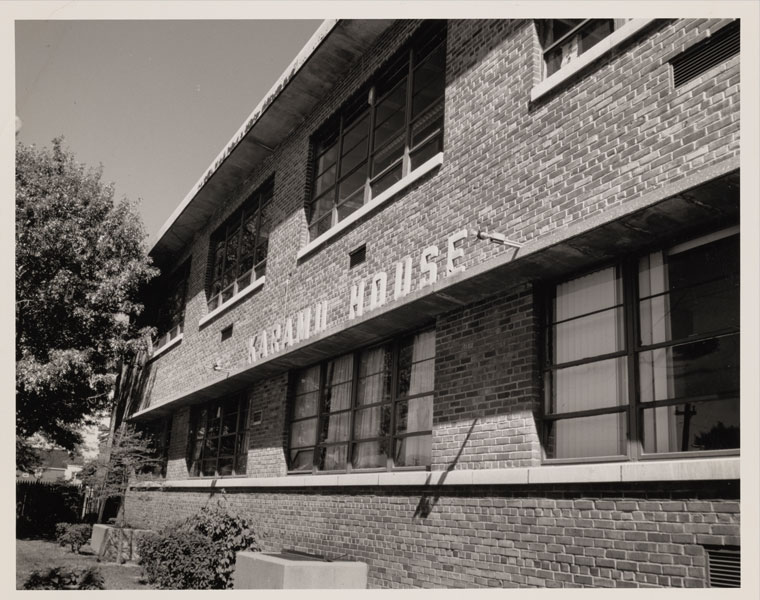Ruby Dee, Robert Guillaume and Langston Hughes are just a few of the familiar names associated with Karamu House—the oldest African American-producing theater in the United States. Since 1915, Karamu House—located on Cleveland’s east side—has nurtured the careers of dancers, photographers, sculptors, printmakers, actors, poets and playwrights. Now, that rich history is entirely searchable online, thanks to the Special Collections team at Case Western Reserve University’s Kelvin Smith Library.
The library acquired the well-cared-for Karamu House archives—consisting of records of the administration, governance, educational services and creative output—in 2021. In the summer of that year, library staff inventoried, sorted and packed the materials before transferring them to campus. The collection was then packed in archival-quality boxes and folders and arranged to reflect the work of their creators before the Special Collections team created an online guide in ArchivesSpace, a collection management platform.
Users can navigate the publicly available collection using keyword searches, including names, dates, events and performances. The archive is also searchable by format, such as meeting minutes, photographs, posters, marketing materials or other items.
In addition to searching the collection online, users can review the materials in the Special Collections reading room at Kelvin Smith Library by scheduling an appointment through Aeon.
To offer a glimpse into this valuable resource, Senior Archivist for Special Collections Eleanor Blackman and University Archives and Special Collections Team Leader William Claspy selected five remarkable materials from the Karamu House archives. Read on to learn about their selections.
1940 Karamu House promotional brochure
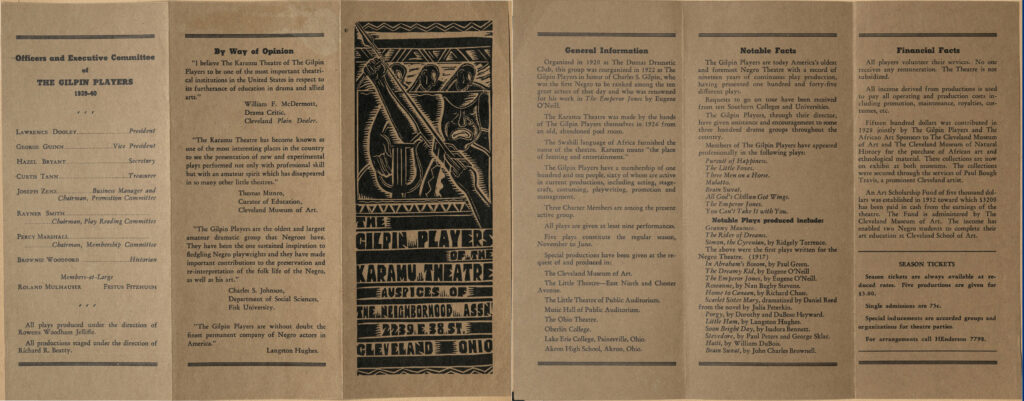
Photo Caption: This brochure includes a brief history and repertoire of the Gilpin Players of the Karamu Theatre from their founding in 1920 through 1940. In 1939, the Karamu Theatre burned down, and the group staged their productions in spaces loaned by area theaters, such as the Cleveland Play House and the Eldred Theater at then-Western Reserve University. The brochure includes notable facts, the theater’s financial information, a list of officers, season ticket pricing and more.
1941 letter from Langston Hughes to Karamu House founder Russell Jelliffe
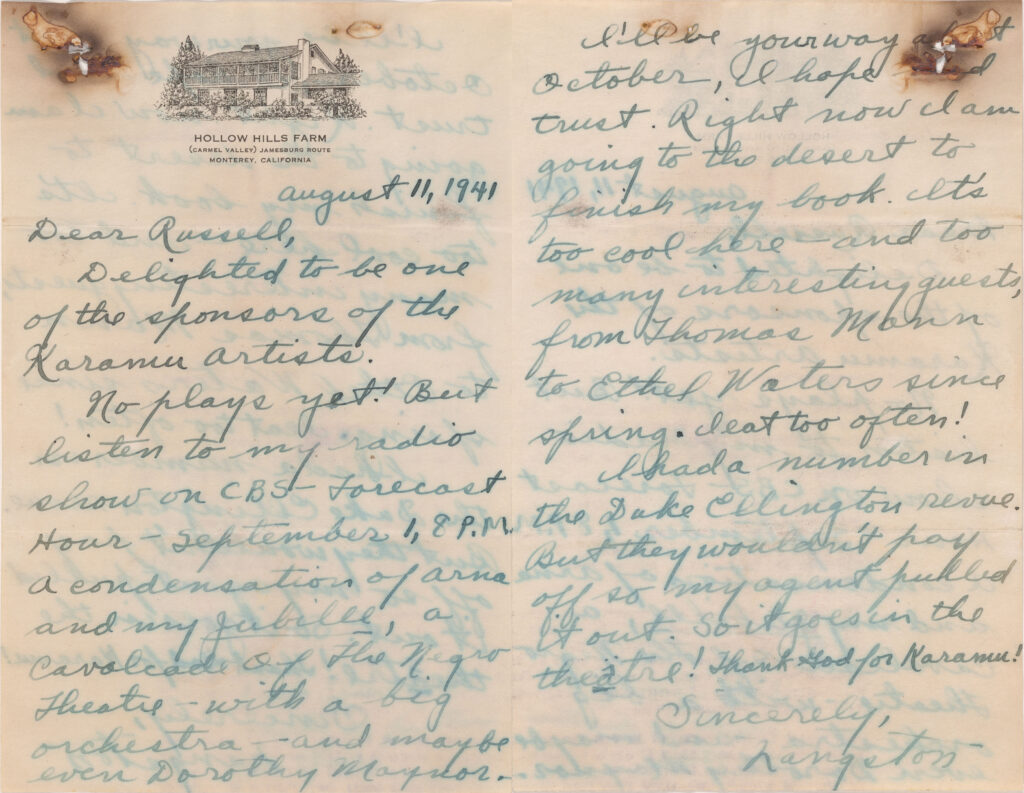
Photo Caption: After a fire destroyed the theater in 1939, Karamu House began a decade-long fundraising campaign to build what is now its current campus. A devoted “alumnus” and lifelong supporter of Karamu House, Langston Hughes, contributed financially and creatively to the campaign by giving speeches, contributing scripts, poems and songs for charity events, and raising awareness among leaders in key cultural groups.
Image of dancer Jackie Earley in 1961
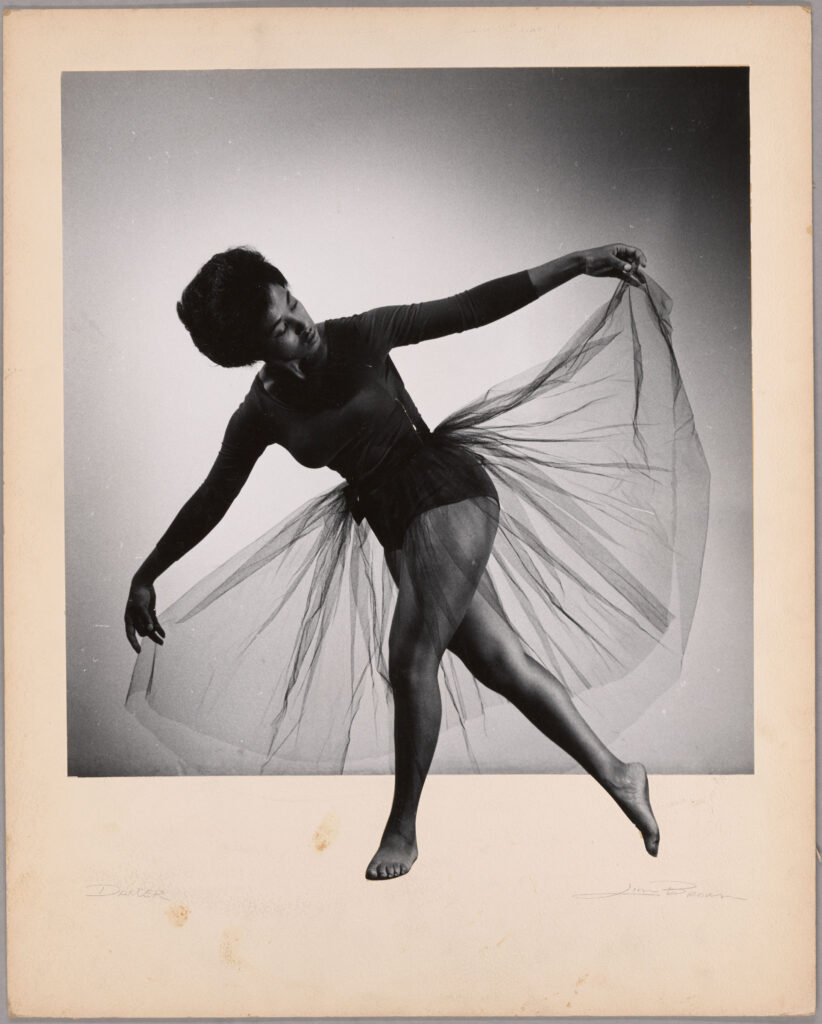
Photo Caption: The history of dance at Karamu House dates back to the early days of choreography for theatrical productions and it formalized a performance troupe in the 1930s. For more than 50 years Karamu Dancers created distinctive productions that received worldwide acclaim. Dance instruction remains a core of the organization’s education programs.
Image of writer Amiri Baraka (left) visiting Karamu House in 1974
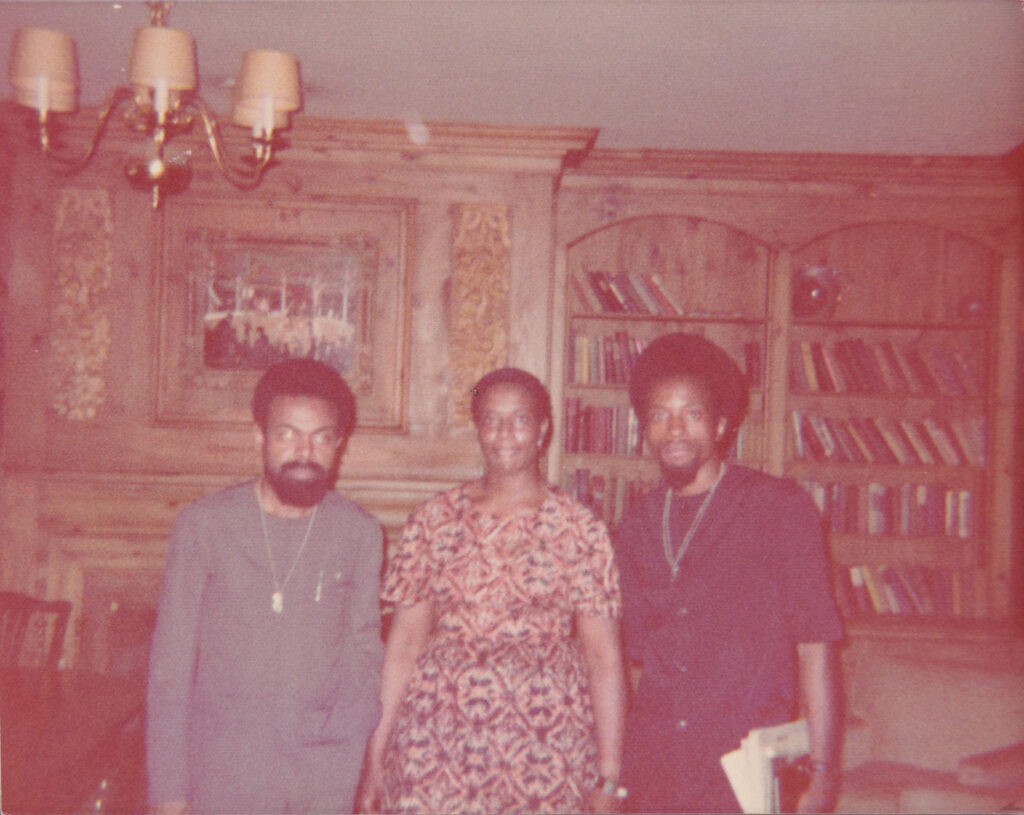
Photo Caption: The impact of the poetic legacy of Karamu House is being explored and celebrated to this day. Poets have been nurtured and celebrated in ways that illustrate the cultural mission of Karamu House. From the close relationship with Langston Hughes, to hosting poets of renown from around the world and establishing the groundbreaking Muntu Poets led by Russell Atkins, Karamu House provides an environment where complex ideas and universal truths are expressed in a way that resonates with people from diverse backgrounds.
Image of Muhammad Ali visiting Karamu House in 1971
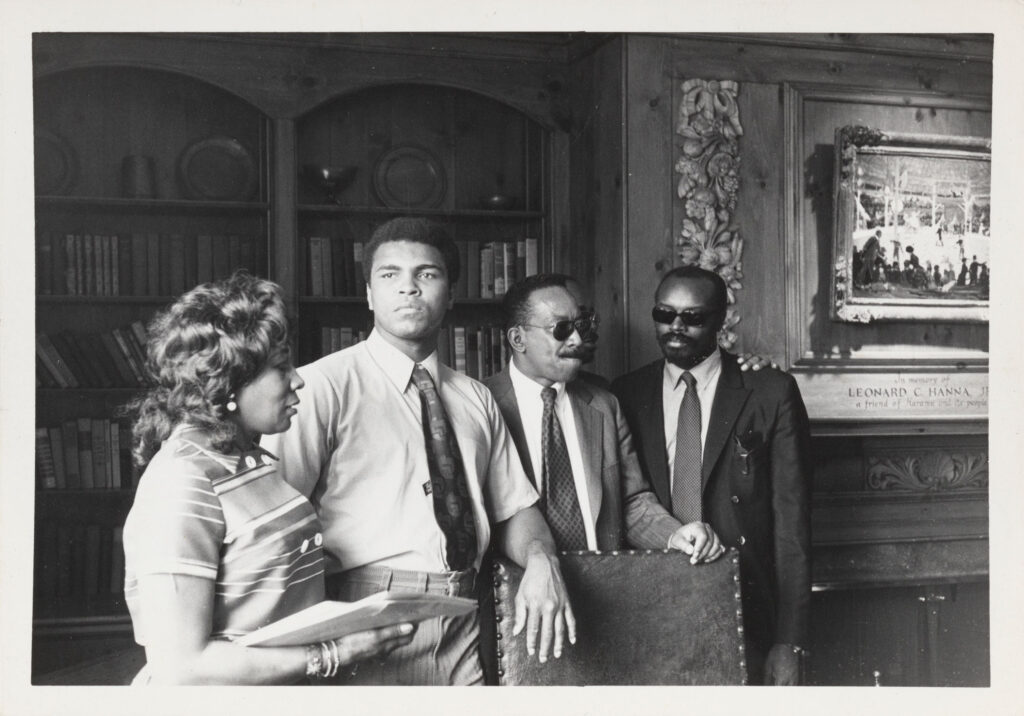
Photo Caption: Muhammad Ali visited Cleveland on many occasions and found time to stop at Karamu House to speak to audiences about self-pride and the value of community relationships in neighborhoods, schools and cultural institutions such as Karamu House.

